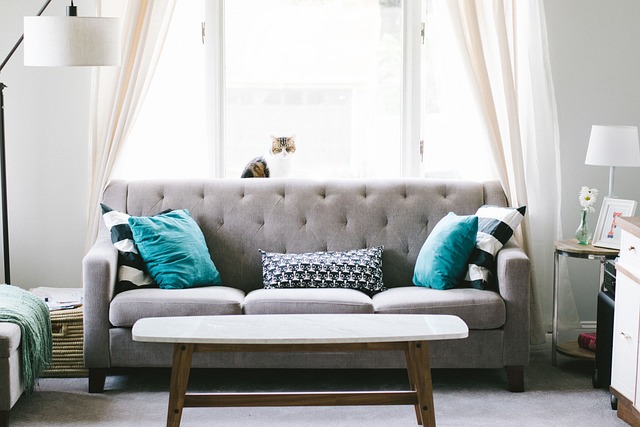In student housing, achieving a balance between privacy and social life is key for creating comfortable living environments. This can be accomplished through tailored solutions like moveable partitions, smart technology controls, and designated study areas. Fostering a culture of respectful coexistence, encouraging open communication, and implementing simple living tips promote this balance. In the digital age, housing providers should empower students with individual environmental control and provide educational resources to enhance this balance, ensuring a satisfying college experience that includes both social interaction and personal privacy.
Achieving a healthy balance between privacy and social life is a key aspect of the college experience, especially in close-knit student housing. This article explores strategies to create comfortable living spaces that cater to the unique privacy needs of students. From space-specific design solutions to fostering respectful coexistence and empowering students to manage their environments, these approaches ensure a fulfilling social life while maintaining personal boundaries. Discover practical tips for optimal student living and learn how to navigate the delicate balance between privacy and community engagement.
- Understanding the Privacy Needs of Students in Close Quarters
- Designing and Implementing Space-Specific Privacy Solutions
- Fostering a Culture of Respectful Coexistence and Communication
- Empowering Students to Take Control of Their Living Environments
Understanding the Privacy Needs of Students in Close Quarters

Privacy is a significant consideration when it comes to student housing, especially as students navigate their academic journey in close quarters. Balancing privacy and social life can be challenging for residents sharing common spaces and living arrangements. Understanding the privacy needs of students involves recognizing that personal space is essential for comfort and well-being. Many students require quiet areas where they can study or retreat from bustling social environments, especially after long days of classes and activities.
Creating comfortable living spaces that cater to these needs is crucial for fostering a positive student experience. Student living tips often emphasize the importance of establishing boundaries within shared accommodation. This may involve implementing simple strategies such as using noise-canceling headphones, setting designated study areas, or adopting a ‘do not disturb’ policy during specific hours. By prioritizing privacy, students can maintain a healthy balance between their social lives and personal time, ensuring they feel respected and valued in their residential environment.
Designing and Implementing Space-Specific Privacy Solutions

In student housing, achieving a balance between privacy and fostering a vibrant social life can be challenging but essential for comfortable living spaces. Designing space-specific privacy solutions allows students to customize their environment according to their needs. For example, incorporating moveable partitions or foldable screens in shared areas enables residents to create intimate study nooks or private conversation zones within open common areas. These flexible arrangements cater to both solitary tasks and group interactions without compromising overall accessibility.
Furthermore, integrating smart technology offers innovative privacy controls. Features like voice-activated lighting adjustments or automated blinds allow students to subtly tailor their living environment at the touch of a button. Such technologies not only enhance privacy but also contribute to student living tips for creating sanctuaries within bustling dorms or shared housing arrangements. By implementing these tailored solutions, students can enjoy both the benefits of social life and maintain personal space, fostering a more balanced college experience.
Fostering a Culture of Respectful Coexistence and Communication

In student housing, achieving a balance between privacy and fostering a vibrant social life is an ongoing challenge. To create comfortable living spaces that cater to both aspects, it’s essential to cultivate a culture of respectful coexistence. Students should be encouraged to communicate openly with their roommates or peers, establishing clear boundaries while also promoting a sense of community.
By implementing simple living tips, such as designated quiet zones and shared common areas, students can enjoy the benefits of social interaction without compromising their privacy. Effective communication ensures everyone’s needs are met, fostering an environment where students can focus on their studies while still enjoying a robust college social life.
Empowering Students to Take Control of Their Living Environments

In today’s digital age, balancing privacy and social life is a delicate act that students often struggle with, especially in shared living spaces. To empower students, housing providers and administrators should encourage and facilitate individual control over their living environments. This can be achieved through implementing smart technology solutions like adjustable privacy curtains, noise-cancelling devices, or even app-controlled lighting systems. Such tools allow students to curate their own comfort zones, fostering a sense of autonomy while also enhancing their overall privacy.
Furthermore, student living tips can include promoting respectful communication among roommates. Clear conversations about preferred quiet hours and personal space can significantly improve the balance between social life and privacy. Educational workshops or online resources offering advice on creating comfortable living spaces that accommodate both social interactions and private moments can empower students to make informed choices regarding their housing environment, ensuring a satisfying college experience.






